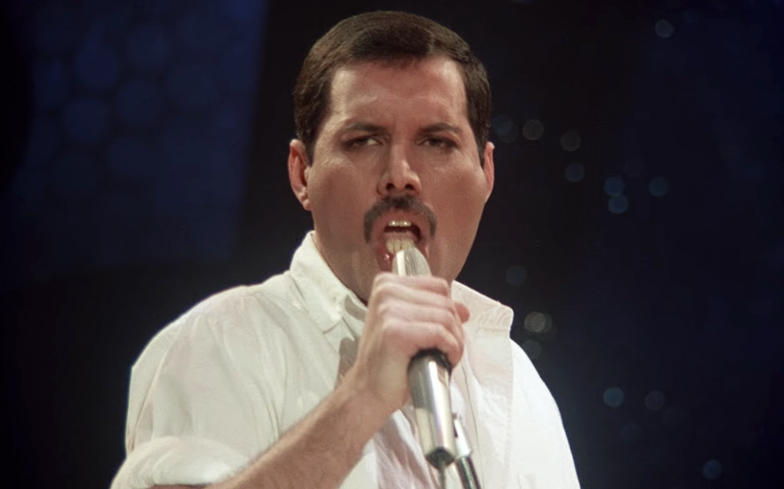
The Queen frontman transformed the music scene for good, but to truly commit to his legacy, we must honour his cultural contribution to tackling the AIDS crisis.
Known for his vibrant stage presence and equally enigmatic dress sense, the singer carved his way into pop culture and history like no other. Many of us recognise Freddie’s musical achievements, but, often, much of that remembrance fails to preserve his truly flamboyant, illustriously camp identity.
There’s no doubt we’re all familiar with Mercury’s 1985 Live Aid performance or Queen’s unforgettable lyrics to hits like Bohemian Rhapsody, but we must also pay homage how, in his final days, the singer brought intense scrutiny on AIDS cases and pushed cultural conversations around the illness.
Before passing away due to complications from AIDS, the singer disclosed his condition both to the public and media. While this may seem like a small act, the impact was monumental. Mercury was not just a victim of a pandemic, but suffered at the hands of negligent government bodies that refused to acknowledge the every-growing epidemic which struck the US and UK in the 1980s.
Taboos and prejudices were quickly thrown into the mix as a way of justify distancing the conversation around AIDS. Freddie Mercury died 1991 while the medical progress around HIV was much too premature. Testing for the virus hadn’t begun until 1985, and effective treatment wasn’t available until 1995. The Thatcher government were equally complicit in stifling any conversation and public health campaigns that could, in any way, be seen to tie into the AIDS crisis.
You may wonder why Freddie Mercury’s personal battle is of importance. Well, Mercury’s death was a turning point. In 1992 The Freddie Mercury Tribute Concert for AIDS Awareness came together. Uniting some of the biggest stars of the time, in honour of Mercury’s death, the concert spotlighted an issue that governments were choosing to ignore.
As Thatcher treated it with disdain and prejudice, across the seas, Reagan neglected it, almost as if the disease were a joke. The Tribute Concert was something bourne out of tragedy, but offered a platform like no other to a subject that was being swept under the carpet as more than half a million died from the disease. Joined by the likes of Elton John, David Bowie, Slash, and Queen, the concert was broadcast live to over 7o countries globally.
While the concert effortlessly raised an incredible amount for AIDS research and spread awareness about the disease, Mercury’s legacy aided in pioneering the cultural change. As we readily celebrate his timeless musical contributions, it seems only fit, on the anniversary of his death, to also recognise the wider impact the artist had on the LGBTQ+ community.



